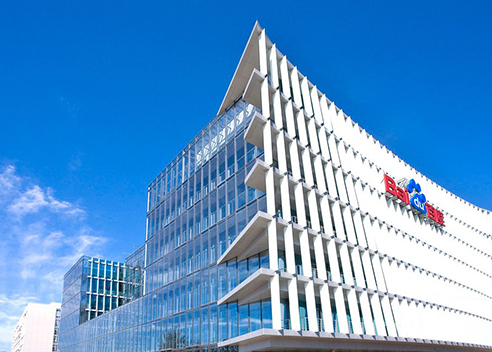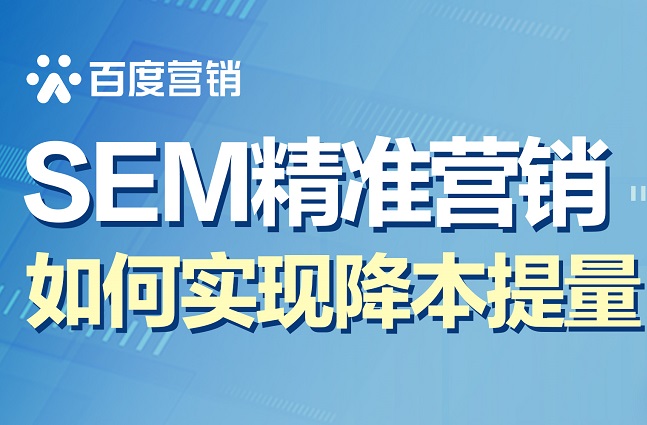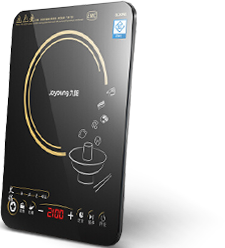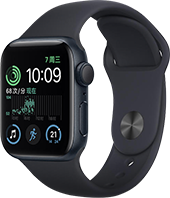In the field of travel, Baidu is not only the trump card of automatic driving.
Last April, Baidu Apollo launched ACE The traffic engine, centering on automatic driving, vehicle road coordination and efficient travel, has provided a set of intelligent transportation solutions covering a series of specific applications such as intelligent information control, automatic driving and traffic management for major cities in China, and has quickly signed cooperation agreements with Beijing, Guangzhou, Chongqing, Nanjing, Baoding and other places.
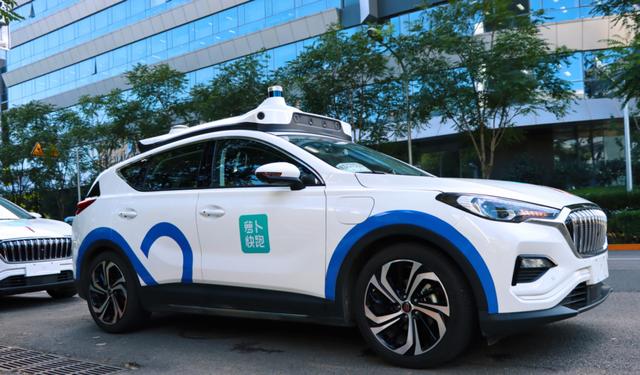
Today, the ACE engine has just been released for more than a year, and the cooperation agreements signed with various regions have also been deployed, setting off a trend of "intelligent transportation" in China.
Enter Huangpu, Baidu Apollo Many models, such as unmanned shared cars, unmanned public transport, unmanned minibuses and unmanned distribution vehicles, are running on different routes; The vehicle road collaboration system can provide road condition information for autonomous vehicles; Baidu map can display traffic lights to read seconds, and voice and video alerts the road conditions ahead; The traffic management department can also realize fine management of special vehicles such as mud trucks
From the perspective of Baidu's intelligent transportation department, the Whampoa project is the "highland" of its intelligent transportation project, namely ACE The scheme has been deployed and built into an urban intelligent transportation operation platform. Based on the traffic data generated by the platform, all kinds of traffic data are oriented to C end, B end and G end The intelligent transportation application of the end provides the soil for birth and continuous evolution.
Unlike the past intelligent transportation projects that can only achieve a single function, the Guangzhou Huangpu project has obviously become a "new model room" for domestic intelligent transportation projects.
So why can Baidu get together with Guangzhou Huangpu? What new travel experiences has ACE engine brought to the people in Huangpu District? What achievements has Baidu achieved in the field of intelligent transportation in the past year?
With these questions in mind, Che Dongxi had an in-depth communication with the core personnel of Baidu project team a few days ago and found the answers.
The house price of Huangpu rises by 3000 yuan with the roar of the taxi master
This year 5 In June, the Ministry of Housing and Urban Rural Development and the Ministry of Industry and Information Technology issued the Notice on Determining the First Batch of Pilot Cities for the Collaborative Development of Smart City Infrastructure and Smart Connected Vehicles, and six cities including Beijing, Guangzhou and Shanghai were identified as the first batch of pilot cities.
In fact, before the release of the above-mentioned documents, Guangzhou was in the forefront of the country. Baidu ACE in the summer of 2020 Shortly after the engine was released, Baidu signed a landing agreement with Huangpu District, Guangzhou. In addition to the halo of pilot cities, the Whampoa project has naturally become the focus of the provincial and municipal governments.
In the process of project implementation, some leaders even reviewed documents at one or two o'clock in the morning, and it became more common for Baidu project team staff to hold meetings late at night. However, in the view of many people who participated in the project construction, the promotion process of Whampoa Intelligent Transport Project is hard, but the final result is very proud.
You can often hear the taxi driver exclaim in the process of taking the bus: "Baidu map here can show the countdown of traffic lights, which can only be used here." Later, it was learned that what the driver said was just a sub function of Baidu Whampoa Intelligent Transportation Project - real-time synchronization of traffic information to Baidu Map APP or DOBE Smart Mirror.
In addition to traffic lights, it can also synchronize video clips of traffic information in front, so that users can see why there is traffic jam in front; Give suggestions on the speed of green wave. When the driver is allowed to drive at this speed, he will encounter green lights at every intersection.
The staff of Baidu project team told Che Dongxi that the government leaders of Guangzhou Huangpu attached great importance to the effect of science and technology on the improvement of people's living standards, and hoped that the deployed technology was really useful rather than a simple show. " There is a local leader who likes to go shopping in the vegetable market. The purpose is to see and hear whether the people's life has improved. "
With regard to the Guangzhou project, the government leaders of Huangpu, Guangzhou, once proposed that "can you let the driverless vehicles run freely in Huangpu District so that people can get a taxi when they go out?"
ACE based Baidu realized the idea of the engine's vehicle road coordination capability. During the Spring Festival Guangzhou Flower Market this year, residents of Huangpu can not only take unmanned taxis, but also take Apollon unmanned buses and unmanned buses, or use driverless retail cars to buy goods.
"This is Baidu's first area where multiple unmanned vehicles drive at the same time," said the staff of Baidu's project team proudly. In addition, ACE The engine also plays an important role in the management of special vehicles and in solving travel pain points. Based on the perception ability at the end of the road and the intelligent rear-view mirror at the end of the vehicle, Baidu helped Huangpu Traffic Management Department to realize the fine management of mud trucks and muck trucks, and the system can accurately identify the illegal behaviors of such special vehicles and track the specific drivers. Another common pain point in daily driving is that large vehicles such as buses in front will block the vision of the vehicles behind, so that they cannot see the traffic lights.
Baidu ACE solved this pain point. It has installed a display screen at the rear of the bus in Huangpu to display the queuing information of vehicles waiting for lights in front on the screen, so that the vehicles behind can have the ability of "perspective".
It is because of this series of futuristic functions that the taxi driver can't help but say, "Buy a house quickly, and it will definitely rise." 3000 yuan. "The staff of the Baidu project team quipped," After the school district housing, the intelligent Internet connected housing has also come out. "
The largest smart transportation model room in China was successfully launched
In April last year, after the release of Baidu ACE traffic engine, Baidu signed landing agreements with several cities. Among them, Guangzhou Whampoa Project is the most important, with a contract amount of 460 million yuan.
On the one hand, this is the largest intelligent transportation order Baidu won last year. On the other hand, it has also set the largest scale for Internet companies to participate in intelligent transportation projects.
However, it is worth noting that intelligent transportation is not a new term in the last year or two. Why did Whampoa choose Baidu? "Because we have the same idea," said the staff of Baidu project team when facing the problem of cars and things.
As he recalled to Che Dongxi, Baidu Group signed a framework cooperation agreement with Guangzhou City in May 2020 involving multiple businesses. Later, Baidu's Intelligent Transportation Business Unit In January, we began to contact with the local state-owned enterprise in Guangzhou - Xinke Group.
The latter has been exploring intelligent transportation technology in the past 10 years, and has carried out a lot of infrastructure construction work. At that time, Xinke Group was thinking about how to operate the built intelligent transportation infrastructure. After learning that Baidu ACE After the ability and concept of, the two sides decided to cooperate with each other as soon as they hit a bargain, and then we had the vision of Whampoa intelligent transportation seen earlier.
He told Che Dong that in the past, the construction of intelligent transportation was a project system - after the deployment of software and hardware, it was only to achieve one or more specific goals. When new functions are needed or old functions need to be upgraded, they will be helpless and can't keep up with the times.
At the same time, each project works on its own, and the data between different projects is not connected, which makes it difficult to cooperate.
Baidu ACE's deployment mode of "base+engine+application" just solves this problem. At the bottom are "cars", "roads", "clouds" and "pictures" Digital transportation infrastructure, including small car OS, Feizhuan, Baidu Intelligent Cloud, Baidu Maps. The middle layer is the two engines of automatic driving and vehicle road coordination.
Based on the base and engine, specific applications will be developed finally, such as unmanned rental, automatic driving logistics, independent valet parking and other applications based on automatic driving technology; Based on vehicle road collaboration, develop intelligent public transportation, intelligent information control system, etc.
Because it is developed based on the same base, different applications can share data. At the same time, top-level applications can also be continuously iterated and upgraded.
The intelligent transportation system will not only realize the specific functions of intelligent signal control, green wave travel, vehicle road cooperative automatic driving, but also generate traffic data continuously. How to operate these data and generate greater value is particularly important.
Baidu's answer is urban intelligent transportation operators.
In Baidu's view, intelligent transportation is similar to the field of communication, and should play the role of operator - on the one hand, it gathers traffic information in the city and provides services externally. On the other hand, we should also accept the supervision and complaints of the people, constantly improve the operation level, and improve the efficiency and safety of transportation.
Li Yanhong also talked about urban transport operators during the two sessions last year. He believes that the telecommunications industry has become more efficient due to the existence of operators, and the economic benefits are also better. At present, the construction of smart city is mature, but it lacks corresponding operation technology.
This intelligent transportation scheme launched by Baidu in Huangpu, Guangzhou, not only enables data sharing and interworking, but also effectively explores the mode of intelligent transportation operators.
When deploying ACE engine, it not only plans the data structure, but also completes various data protocols and interfaces to facilitate more enterprises and government departments to use these data.
It has set up a joint venture with local state-owned enterprises in Guangzhou to operate traffic data and explore the business model of data operation.
For example, the government affairs business service platform developed by Guangzhou government can connect the digital base of Huangpu and call the traffic data of Baidu ACE.
To sum up, the most important two points for Baidu to win the Guangzhou Huangpu Intelligent Transportation Project are the construction mode of interconnection and the continuous operation capability of digital transportation, which is fundamentally different from the intelligent transportation construction logic of the previous project system, and can be called a new generation model project in the domestic transportation field.
Baidu's ACE program for the first anniversary of entering the city has been launched across the country
In April last year, Baidu released its intelligent transportation solution "ACE Engine", and signed landing agreements with Guangzhou Huangpu and other places in the summer.
If we consider last summer as the starting point for Baidu to formally enter the intelligent transportation market, it is just the first anniversary of Baidu's entry into the city (intelligent transportation market).
In the past year, except for Guangzhou project, ACE The engine has also carried out landing practice in more than 20 cities, including Beijing, Changsha, Baoding, Cangzhou, Chengdu, Nanjing, Shanghai, Yangquan, Chongqing, Zhengzhou, Yinchuan, Hefei, Wuhan and Dalian.
In Baidu's view, the technical path of intelligent transportation is divided into three aspects: "digital upgrading, networking transformation, and automation reform". Guangzhou project covers the above "three modernizations" at the same time While the intelligent transportation schemes in other cities have their own priorities.
For example, Changsha is inclined to "automation reform", and there are many automatic driving test vehicles running; Baoding is inclined to "digital upgrading", improving and managing efficiency and urban traffic efficiency through traffic management digitalization.
In December 2019 and December 2020, Baidu won two consecutive phases of the Baoding "AI Traffic Management Brain" construction project with a total of about 190 million yuan.
It is understood that Baidu has built an intelligent signal control system at 84 intersections of four main roads in Baoding City, which can adaptively adjust the signal light counting according to the traffic flow, and the number of adjustments at a single intersection reaches 300 times a day Times. After optimization, the driving speed of the main road has increased by 3.3km/h on average, the number of stops has decreased by 26%, and the overall traffic efficiency of Baoding has increased by 20-30%.
The staff of Baidu project team told Che Dongxi that in addition to intelligent transportation projects in cities, Baidu is also building teams to enter the smart high-speed market, and has established cooperation relationships with highway management groups in some provinces and cities.
In addition to cities, Baidu has also actively participated in intelligent transportation integration projects in domestic automated driving and vehicle road collaborative test zones (yards) in Beijing, Shanghai, Hefei, Chongqing, Chengdu, Yinchuan, Yangquan, etc.
In 2020, Baidu participated in the construction of Beijing Yizhuang Netlink Cloud controlled High level Automatic Driving Demonstration Area, and built 28 intelligent intersections in the core area of the demonstration area of 12.1km to support L4 The planning and operation of high-level autonomous vehicles can also be downward compatible with the test operation of low-level autonomous vehicles and the implementation of Internet of Vehicles application scenarios.
In the past year, Apollo has proved to the outside world with its own practical actions that Baidu has not only automated driving, but also intelligent transportation.
Here is another key question. At this stage, the government pays for most intelligent transportation projects. Are these projects performance projects, face saving projects, or really useful?
When talking about this topic, the staff of the Baidu project team said to Che Dong“ The core principle of Baidu's intelligent transportation is to be responsible for the results and speak with data. The Guangzhou government has also contacted a number of intelligent transportation projects, among which our evaluation is the highest. "
In an interview, insiders of Baidu Intelligent Transportation also said that Baidu's pursuit of sustainability in intelligent transportation is to create real value, specifically to improve traffic safety, improve traffic efficiency, and enhance people's travel experience.
Years of accumulation of driverless vehicle technology, smart transportation becomes a new growth pole
After years of development, automatic driving has become Baidu's most important innovative business. But in the past year, thanks to the spring breeze of new infrastructure, Baidu has obviously incubated a new growth pole of intelligent transportation, which, together with automatic driving technology, has become two key supports for Baidu to embrace the era of intelligent cars.
The staff of the Baidu project team revealed to Che Dongxi that although the Intelligent Transportation Business Unit of IDG was established late, it now has thousands of people, which shows that Baidu attaches great importance to it.
Then the question arises. As Baidu's "late start business", why can intelligent transportation quickly gain recognition from more than 20 cities in China within one year and achieve rapid development?
The most straightforward answer is, of course, that Baidu's intelligent transportation application is better.
People from Baidu Group previously told Chedongshi that some intelligent transportation applications look similar, but "the devil is in the details".
For example, for the inductive intelligent optimization of traffic light control in cities, cameras are needed to predict the time when vehicles arrive at the stop line. However, previous researchers used virtual sections to make static judgments, with an average error of 0.8 Seconds. Baidu, on the other hand, moved the continuous frame technology commonly used in unmanned vehicles, with an average error of only 0.3 seconds.
Perception is the basic capability of the intelligent transportation system, where a variety of artificial intelligence technologies are needed, and the development of artificial intelligence technologies requires massive actual data to support.
As of June this year, the actual road test mileage of Baidu L4 autonomous vehicles has exceeded 12 million kilometers, which is not only far ahead in China, but also just behind Google in the world Waymo。 It is this scale of testing that has fostered a strong perception, which is also a technological advantage that other enterprises simply cannot match.
In addition, in 2016, Baidu began to lay out the research and development of the whole stack of vehicle road collaboration, and perceived at the end of the road, V2X Communication, edge computing and other aspects have accumulated valuable experience and technical advantages, and launched a vehicle road cooperative automatic driving scheme, Apollo Ai, which relies solely on road end perception and decision-making The plan also provides strong support for its intelligent transportation scheme.
In the architecture diagram of Baidu ACE engine, automatic driving and vehicle road collaboration are its two core engines. At the bottom are the four digital bases of "vehicle road cloud map".
In terms of cars, Baidu has the largest automated driving test team in China, as well as small car OS, Carlife mapping system and small car mirror, and has achieved cooperation with dozens of car companies in terms of intelligent car connection.
In terms of road, Baidu has developed its own road end perception and communication scheme, and has also invested in sensor and traditional intelligent transportation manufacturers.
Baidu Cloud ranked first in the market share of China's AI public cloud service market for three consecutive years. Baidu Maps has a huge amount of road network and location information, as well as hundreds of millions of users.
Most importantly, Baidu's AI platform can output 240 AI capabilities, as well as the deep learning platform for flying oars.
The combination of these basic technologies and elements can support the research and development of autonomous vehicles and vehicle road collaboration technologies, and ultimately derive intelligent transportation applications such as intelligent signal control, intelligent car connection, and unmanned taxis.
It is precisely because of this architecture and Baidu's cutting-edge thinking and layout of intelligent transportation operators that Apollo quickly found a new avenue of intelligent transportation in just one year.


